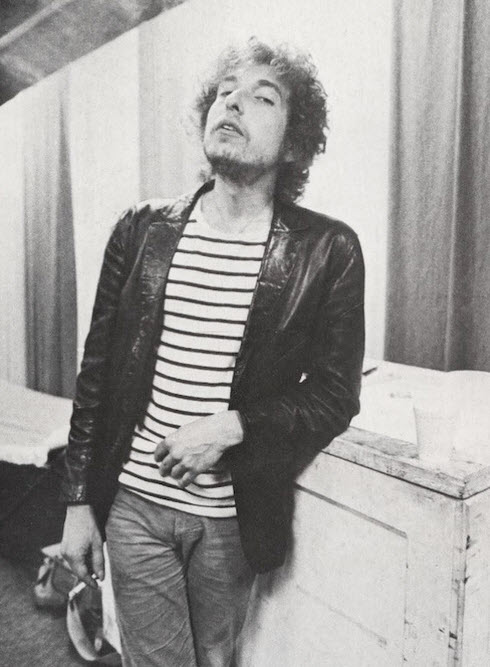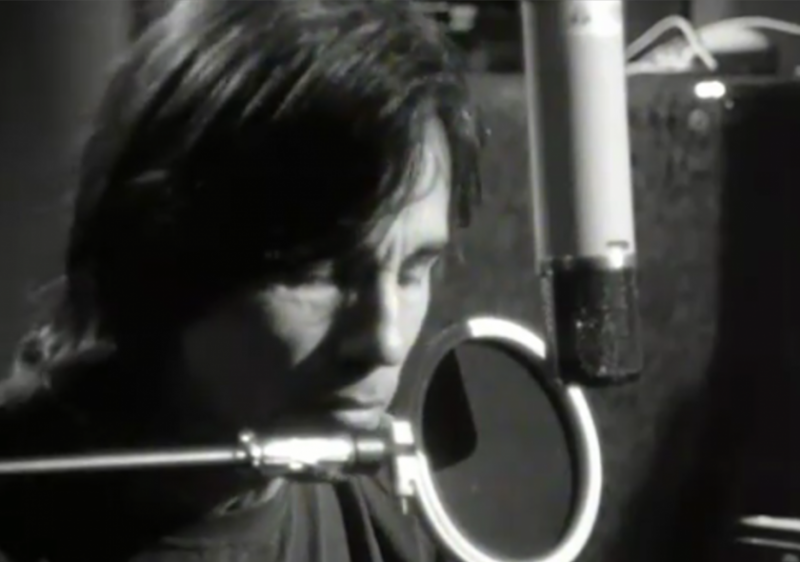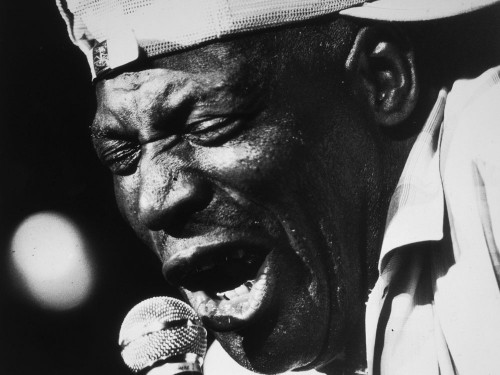
The greatest twenty words of music criticism spoken by any person in the 20th century (Paul Williams):
“When I heard Howlin’ Wolf, I said, This is for me. This is where the soul of man never dies.”
– Sam Phillips
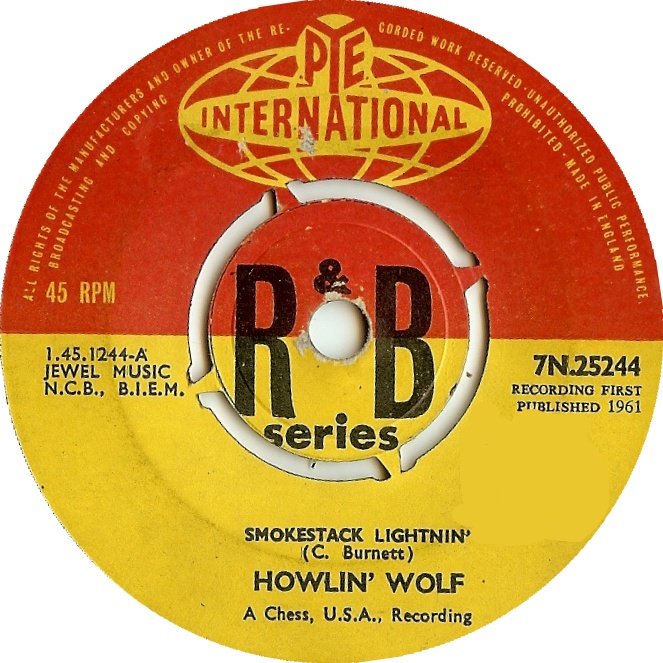
Howlin’ Wolf is for me the second greatest blues man in history.
His voice chills me to the core.. looking at videos of him fills me with awe.. and reading about him… makes me understand his importance in american music history. He rambled with Son House, Charlie Patton…. and stumbled upon Robert Johnson now & then…
Our Man & Son House:

Smokestack Lightning is his best song.
The late great Robert Palmer once wrote:
God, what it would be worth on film to see the fervor in that man’s face when he sang. His eyes would light up, you’d see the veins come out on his neck, and buddy, there was nothing on his mind but that song. He sang with his damn soul
Now for the Facts… from Wikipedia:
“Smokestack Lightning” (or “Smoke Stack Lightning” as listed on the original single) is a classic of the blues. In 1956, Howlin’ Wolf recorded the song and it became one of his most popular and influential songs. It is based on earlier blues songs and numerous artists later interpreted it.
| Single by Howlin’ Wolf |
| B-side |
“You Can’t Be Beat” |
| Released |
March 1956 |
| Format |
7″ 45 rpm & 10″ 78 rpm records |
| Recorded |
Chicago
January 1956 |
| Genre |
Blues |
| Length |
2:32 |
| Label |
Chess (Cat. no. 1618) |
| Writer(s) |
Chester Burnett aka Howlin’ Wolf |
| Producer |
Leonard Chess, Phil Chess, Willie Dixon |
“Smokestack Lightning”, in one form or another, “had been part of his [Wolf’s] repertoire as far back as the early 1930s” when he was performing with Charley Patton in small Delta communities. The song, called “a hypnotic one-chord drone piece” draws on earlier blues, such as Tommy Johnson’s “Big Road Blues” (1928 Victor 21279), the Mississippi Sheiks’ “Stop and Listen Blues” (1930 OKeh 8807), and Charley Patton’s “Moon Going Down” (1930 Paramount 13014). Wolf said the song was inspired by watching trains in the night: “We used to sit out in the country and see the trains go by, watch the sparks come out of the smokestack. That was smokestack lightning.“ In 1951, Howlin’ Wolf recorded the song as “Crying at Daybreak” (RPM 340). It contains the line “O-oh smokestack lightnin’, shinin’, just like gold, oh don’t you hear me cryin’ …” similar to the Mississippi Sheiks “A-ah, smokestack lightnin’, that bell shine just like gold, now don’t you hear me talkin’ …”
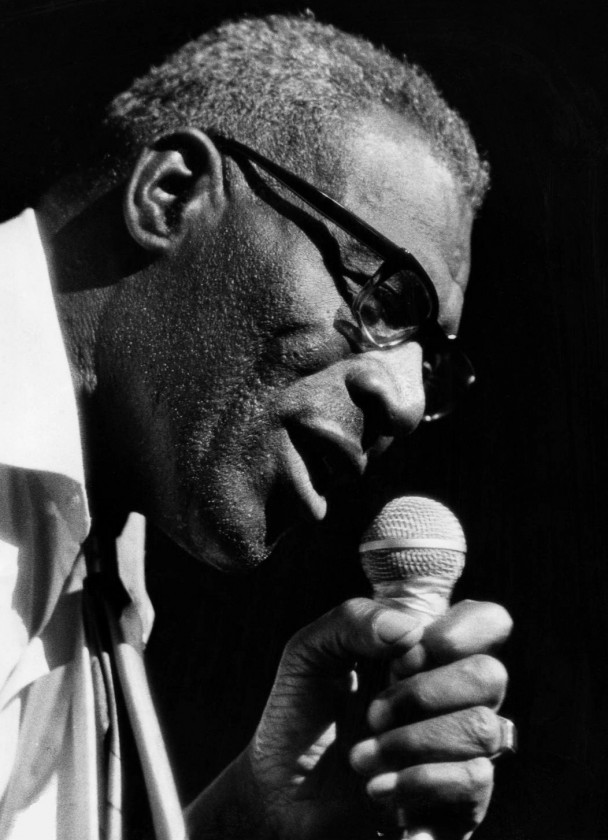
Accolades
- “Smokestack Lightning” received a Grammy Hall of Fame Award in 1999 honoring its lasting historical significance.
- It is ranked #285 in Rolling Stone magazine’s list of the “500 Greatest Songs of All Time”
- In 1985, the song was inducted into the Blues Hall of Fame in the “Classics of Blues Recordings” category.
- It is also included in the Rock and Roll Hall of Fame list of the “500 Songs that Shaped Rock and Roll”.
- In 2009 “Smokestack Lightning” was selected for permanent preservation in the National Recording Registry at the Library of Congress in the United States
The Lyrics:
Ah, oh, smokestack lightning
Shinin’, just like gold
Why don’t ya hear me cryin’?
Ah, whoo hoo, ooh…
Whoo…
Whoa, oh, tell me, baby
What’s the, matter with you?
Why don’t ya hear me cryin’?
Whoo hoo, whoo hoo
Whoo…
Whoa, oh, tell me, baby
Where did ya, stay last night?
A-why don’t ya hear me cryin’?
Whoo hoo, whoo hoo
Whoo…
Whoa, oh, stop your train
Let her, go for a ride
Why don’t ya hear me cryin’?
Whoo hoo, whoo hoo
Whoo…
Whoa, oh, fare ya well
Never see, ah, you no more
Ah, why don’t ya hear me cryin’?
Ooh, whoo hoo, whoo hoo
Whoo…
Whoa, oh, who been here baby since
I, I been gone, a little, bitty boy?
Girl, be on
Ah, whoo hoo, whoo hoo
Live in England 1964:
Studio version:
– Egil
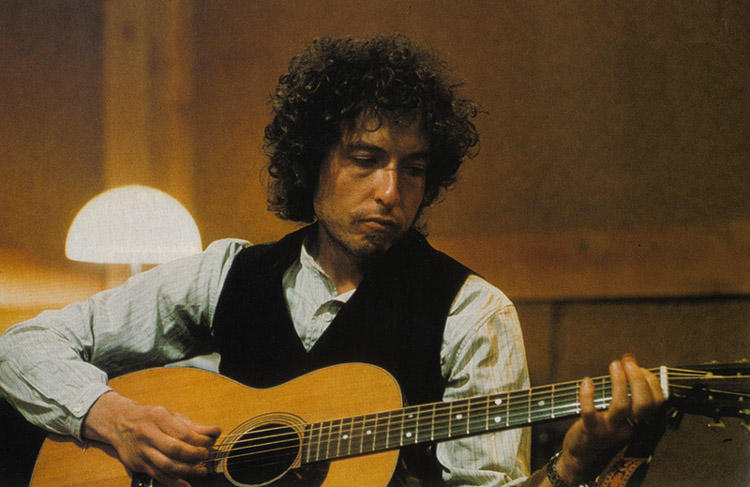 This is not a “best from 1974” list, just 5 Great songs Bob Dylan recorded in 1974.
This is not a “best from 1974” list, just 5 Great songs Bob Dylan recorded in 1974.)

